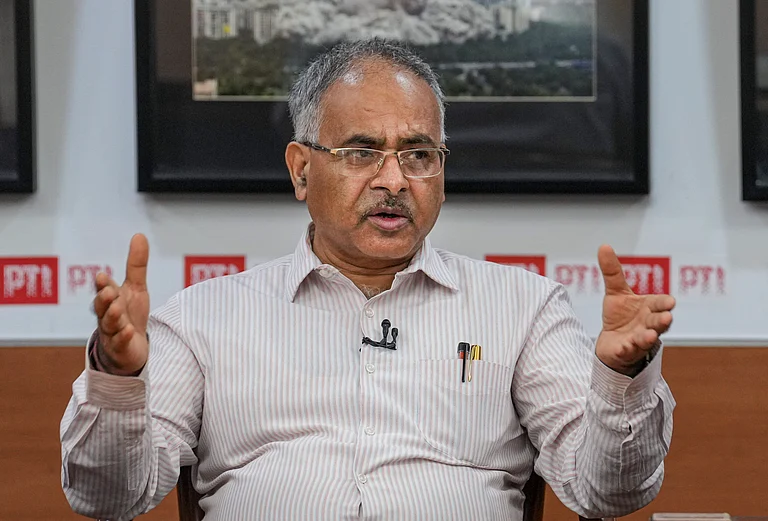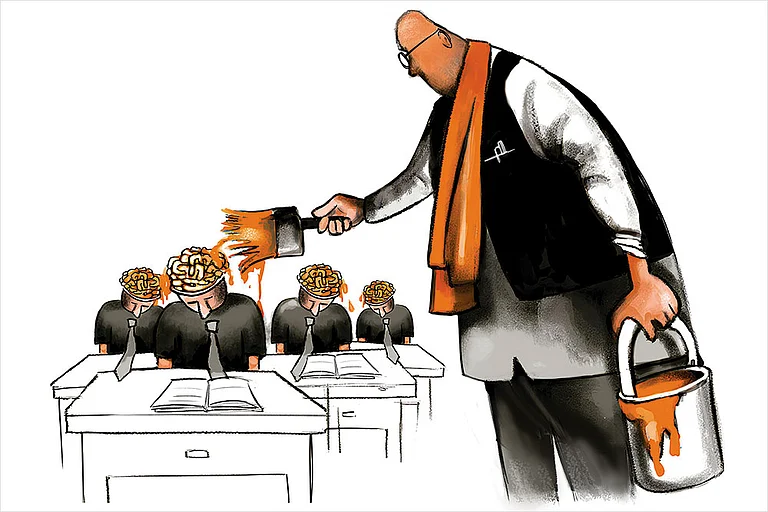
NCERT drops Mughal decline, Marathas, and 18th-century conflicts from Class 8.
Tipu Sultan, Anglo-Mysore Wars, and senior-level Mughal content also removed.
NCERT cites “rationalisation” under NEP 2020; critics warn of historical gaps.
The National Council of Educational Research and Training (NCERT) has released revised history textbooks that change how students learn about the transition from the Mughal empire to British colonial rule.
Issued under the National Education Policy (NEP) 2020 and the National Curriculum Framework for School Education (NCF-SE) 2023, the new editions remove lessons on the decline of the Mughal empire, the rise of regional kingdoms, and southern resistance to the East India Company. Officials call the move “rationalisation” to reduce overload, but critics warn that major parts of India’s past are being cut out.
From Mughal decline to colonial rule
In the Class 8 textbook Exploring Society: India and Beyond, the section on the empire’s decline after Aurangzeb’s death in 1707 has been dropped. Earlier editions had described the political fragmentation that followed, the emergence of successor states, Maratha ascendancy, and Afghan contests for power. The revised edition now bypasses this period entirely and moves directly into British colonial dominance, leaving out what historians call a crucial “missing middle.”
Similar changes appear elsewhere. In Class 7, a two-page table of Mughal emperors and their key policies has been removed. At the Class 12 level, the chapter “Theme 9: Kings and Chronicles, The Mughal Courts”, which once introduced students to Persian chronicles, court culture and imperial administration, has also been dropped.
Regional rulers and reframing the Mughals
References to Tipu Sultan, Haidar Ali, and the Anglo-Mysore Wars are no longer part of the Class 8 syllabus. The omissions have been flagged in Parliament, where concerns were raised about regional histories being sidelined. The Union government has replied that states are free to include such material in their own supplements, outside NCERT’s framework.
What remains of the Mughal period has been reframed. Babur is described as “ruthless” in his conquests, Akbar’s reign is presented as a balance of political accommodation and coercion, and Aurangzeb is noted both for his campaigns and his “religious intolerance.” A footnote titled “No-Blame” instructs students to study historical figures without moral judgement, emphasising context over verdict. The chronological sweep has been replaced with thematic clusters, aiming to encourage analysis of cause and effect and the interplay of politics and culture.
NCERT has said the restructuring was undertaken after consultations and follows NCF-SE guidelines on reducing repetition. Officials insist Mughal history is still taught in other grades, arguing that the changes are about streamlining, not erasure. Historians and educators counter that the cuts deprive students of India’s historical texture, particularly the transition from empire to colonial rule.
For now, the Class 8 history book stands as an example of the NEP’s approach: shorter, sharper syllabi and a recalibrated emphasis on how India’s past is taught. Whether it becomes a model for other subjects or remains contested will depend on classroom responses and the next round of revisions.





























